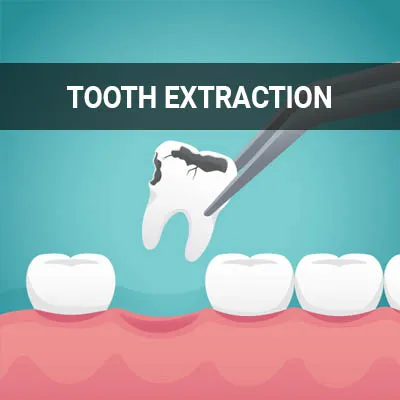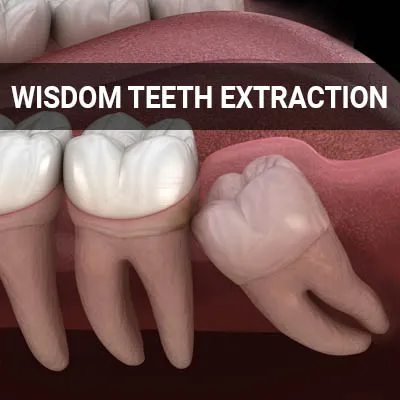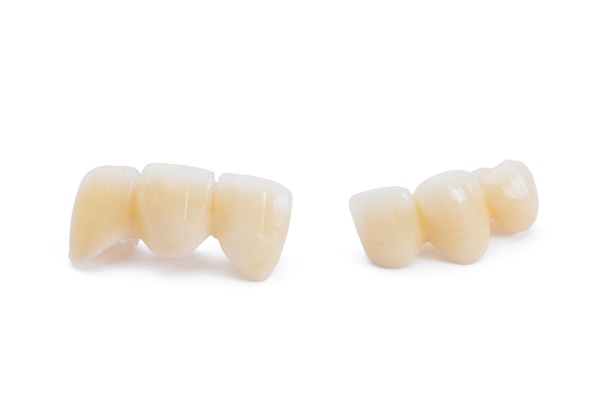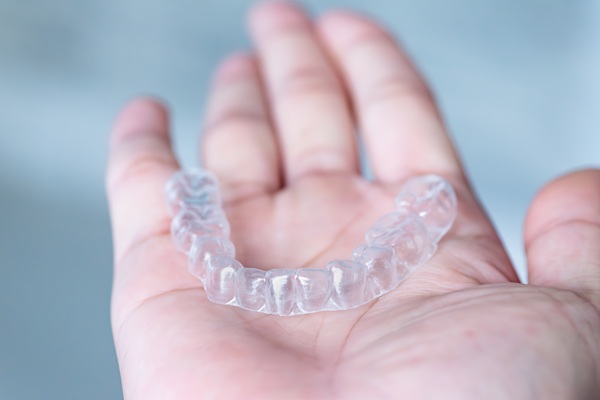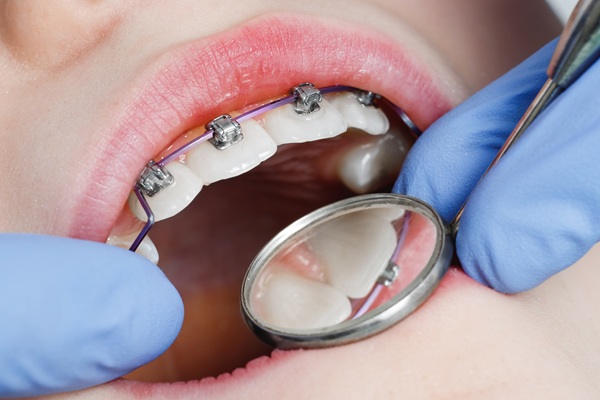Oral Surgery Quincy, IL
Oral surgery procedures include diagnosis, treatment, medicines, and recovery. Many dental conditions require oral surgery to treat the problem and prevent further complications from arising. Oral surgery may seem intimidating to many patients, but advances in dental technology have made these procedures less invasive with reduced treatment and recovery time. They may be recommended or required for patients experiencing teeth, bone, or jaw irregularities due to an injury, defect, or condition.
Oral surgeries are available at Buffalo Prairie Dental in Quincy and the surrounding area. Our staff can help you learn more about the procedure and answer any questions you have. Call us at (217) 334-4312 to schedule a consultation appointment today.
Understanding Oral Surgery
As recognized by the American Dental Association, oral and maxillofacial surgery deals with diagnosing and treating diseases, injuries, and defects involving the hard and soft tissues of the oral and maxillofacial region. "Oral" refers to the mouth, and "maxillofacial" refers to the jaw and face. Since the field may address both aesthetic and functional areas of these regions, there are many different types of oral and maxillofacial surgeries. Oral surgery is a long-established and well-researched area of study that is safe when conducted by a qualified professional.
“Because the field may address both aesthetic and functional areas of these regions, there are many different types of oral and maxillofacial surgeries.”
Conditions That Lead to Oral Surgery
Oral surgery is intended for cases in which other basic treatments are insufficient in treating the problem or condition. According to Web MD, the most common conditions that prompt oral surgery includes impacted teeth, tooth loss, jaw-related problems, and facial or maxillofacial abnormalities or infections. The initial diagnosis will reveal the need for oral surgery, allowing both the patient and dentist to understand the complications of the present condition.
Impacted Teeth
Impacted teeth are usually the result of pressure resultant from wisdom teeth or other teeth that have erupted or developed improperly. This can cause tooth misalignment, entrapped and crowded teeth, and, in severe cases, the formation of cysts and other infections. Removal of impacted teeth can help prevent damage and decay, keeping the oral cavity healthy.
Tooth Loss
Tooth loss is often the result of severe decay, infections, diseases, injuries, and accidents. Dental implants act as substitutes for tooth roots and keep artificial teeth replacements securely in place. Implants help fill in gaps that could otherwise produce infection or lead to misalignment issues as surrounding teeth move closer together.
Jaw-related Problems
Jaw-related problems include unequal jaw growth, correction of jaw irregularities, and TMJ disorders. These conditions can cause improper development of the jaw, deterioration of surrounding/underlying bone, and jaw joint dysfunction. Oral surgery can correct these issues while aligning the upper and lower jaws to allow for proper oral functioning.
Abnormalities and Infections
Other conditions that warrant oral surgery are abnormalities and infections such as facial injury repair, lesion removal and biopsies, cleft lip/cleft palate repair, facial infections, and sleep apnea. Oral surgery for these conditions can repair broken or fractured jaws and allow the jaw, lip, and connective tissues to function normally. Surgery may also be necessary to remove lesions or infections in the gum or jawline.
“Oral surgery is intended for cases in which most other basic treatments are insufficient in treating the problem or condition.”
Preparing for Oral Surgery
Oral surgery can be a complicated process. Taking a few easy steps can help simplify the process. Patients should maintain open and honest channels of communication with their dental professional at all times. There is no shame in asking questions. Being informed about what is going to happen and why can do a great deal to assuage any fears.
Those who will undergo sedation should not eat or drink anything, including water, after midnight the evening before surgery. Fasting prevents the chances of aspiration, a rare complication of anesthesia in which the lungs fill with the contents of the stomach. However, a small sip of water to take medication during the fast is permissible.
“There is no shame in asking questions. Being informed about what is going to happen and why can do a great deal to assuage any fears.”
Check out what others are saying about our dental services on Yelp: Oral Surgery in Quincy, IL
Surgery Procedure
On the day of surgery, we advise patients to arrive early to complete any necessary paperwork. It also allows them to stay calm and relaxed before their surgery, keeping their heart rate and blood pressure steady. The duration of surgery depends largely on the condition, severity, and current oral health status. We will discuss the length of time before the surgery.
Once the patient has checked in and is ready for treatment, we will inject the anesthetic, which will be local or general anesthesia or nitrous oxide. An IV may be required for some patients to keep their vitals up during surgery. Once the patient is numb, we will begin the procedure. Each procedure varies, but the patient will have a good understanding of what their procedure will entail before coming in on the big day.
“The duration of surgery depends largely on the condition, severity, and current oral health status, but the estimated length of time will be discussed with the patient before the day of surgery.”
Questions Answered on This Page
Q. How should I prepare for oral surgery?
Q. What are the reasons for oral surgery?
Q. What happens during the surgery procedure?
Q. What happens during the recovery period?
People Also Ask
Q. What is a dental implant procedure?
Q. What is the most durable option for replacing missing teeth?
Q. What are the reasons for wisdom teeth extraction?
Q. What are some of the signs indicating a need for tooth extraction?
Recovery
Each patient and their recovery time is different. The day of surgery will require complete rest as patients will likely be drowsy. It is important to keep the head elevated while lying down, avoid any strenuous activities, and drink plenty of fluids. Patients will be prescribed pain relievers and antibiotics, which they will need to take as directed.
Bruising, bleeding, and swelling are common symptoms after oral surgery and are completely normal for the first few days. However, if these or other concerning symptoms persist, call us immediately to schedule a follow-up.
“It is important to keep the head elevated while lying down, avoid any strenuous activities, and drink plenty of fluids.”
Frequently Asked Questions
Q. Is there open enrollment for oral surgery?
A. Oral surgery is included in many dental insurance plans. It is important to talk to your provider prior to booking the surgery in order to understand your benefits and what you may owe. Open enrollment for oral surgery differs from state to state, and the deadlines are posted on state government websites.
Q. What is "dry socket?"
A. Dry sockets are blood clots that often appear after extraction surgeries and usually go away on their own. In most cases, dry sockets result from inadequate hygiene practices, smoking, and overexertion during recovery. Symptoms include bad breath, foul odor and taste, and increased pain. Patients who experience dry socket for longer than three days should contact their doctor as soon as possible to schedule a follow-up.
Q. Is oral surgery painful?
A. Any type of oral surgery involves the use of anesthesia to keep patients comfortable and pain-free during the procedure. In most cases, the numbing agent lasts for at least an hour after the surgery and may last the remainder of the day, depending on the type of surgery and anesthetic used. However, after the numbing agent wears off, patients will likely feel pain in or around the surgical site and will be given pain relief medication and antibiotics to help with swelling and inflammation.
Q. What are the most common types of oral surgeries?
A. The single most common oral surgery is wisdom tooth extraction, with an estimated 10 million wisdom teeth extracted from approximately five million people in the United States each year. Other common oral surgeries include dental implants, bone grafting, corrective jaw surgery, and facial trauma surgery.
Q. When can I start eating and resuming my everyday activities?
A. In most cases, patients may resume eating as normal as soon as a week after surgery. Since each type of surgery is different, we may recommend patients eat certain foods and beverages for a shorter or longer period. Medications may also alter eating habits. This will all be discussed during the consultation appointment and reiterated after the surgery.
Oral Surgery Terminology
Learn More Today
Sometimes, only oral surgery can adequately address your dental issues. We at Buffalo Prairie Dental may be able to help. Call us today at 217-334-4312 to learn more and schedule an appointment.
Helpful Related Links
- American Dental Association (ADA). Glossary of Dental Clinical Terms. 2024
- American Academy of Cosmetic Dentistry® (AACD). Home Page. 2024
- WebMD. WebMD’s Oral Care Guide. 2024
About our business and website security
- Buffalo Prairie Dental was established in 2019.
- We accept the following payment methods: American Express, Cash, Check, Discover, MasterCard, and Visa
- We serve patients from the following counties: Adams County, Brown County, Marion County and Lewis County
- We serve patients from the following cities: Quincy, West Quincy, Taylor, Payson, Camp Point, Mendon, Mt Sterling and La Grange
- National Provider Identifier Database (1750440632). View NPI Registry Information
- Norton Safe Web. View Details
- Trend Micro Site Safety Center. View Details
Back to top of Oral Surgery



